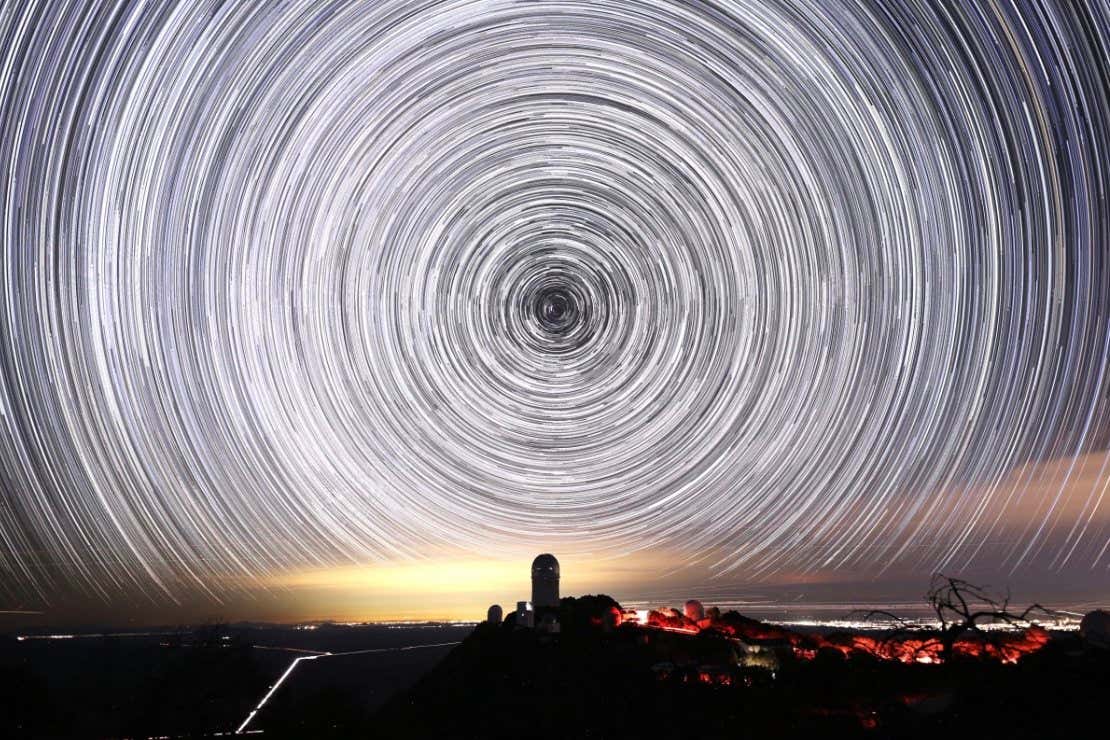Our current best theories of the universe suggest that dark energy is making it expand faster and faster, but new observations from the Dark Energy Spectroscopic Instrument suggest this mysterious force is actually growing weaker
By Karmela Padavic-Callaghan
19 March 2025
Star trails over the Mayall Telescope in Arizona, which houses the Dark Energy Spectroscopic Instrument
Luke Tyas/Berkeley Lab
Dark energy is one of the most mysterious features of our universe – we don’t know what it is, but it controls how the universe is expanding, as well as its ultimate fate. Now, a study of millions of celestial objects has revealed that we may have been thinking about it all wrong, with potentially dramatic consequences for the cosmos.
“This is the biggest hint we have about the nature of dark energy in the approximately 25 years since we discovered it,” says Adam Riess at Johns Hopkins University in Maryland.
Read more
Do we create space-time? A new perspective on the fabric of reality
Advertisement
The result comes from three years’ worth of data gathered by the Dark Energy Spectroscopic Instrument (DESI) in Arizona. By combining this data with other measurements, such as maps of the cosmic microwave background radiation and supernovae, the DESI team has concluded that dark energy may have changed over time – directly contradicting the standard model of cosmology, called lambda-CDM.
“This is the cutting edge of human knowledge,” says DESI team member Will Percival at the University of Waterloo in Canada. “We’re seeing something amazing with the whole universe.”
DESI is mounted on a telescope and works by measuring the “red shift” of light emitted by distant galaxies, or how the wavelengths of that light are stretched as it travels through the universe. From this, researchers can determine how much the universe has expanded during the light’s journey and calculate how this expansion is changing. So far, the team has analysed light from nearly 15 million galaxies and other bright objects in the sky.
